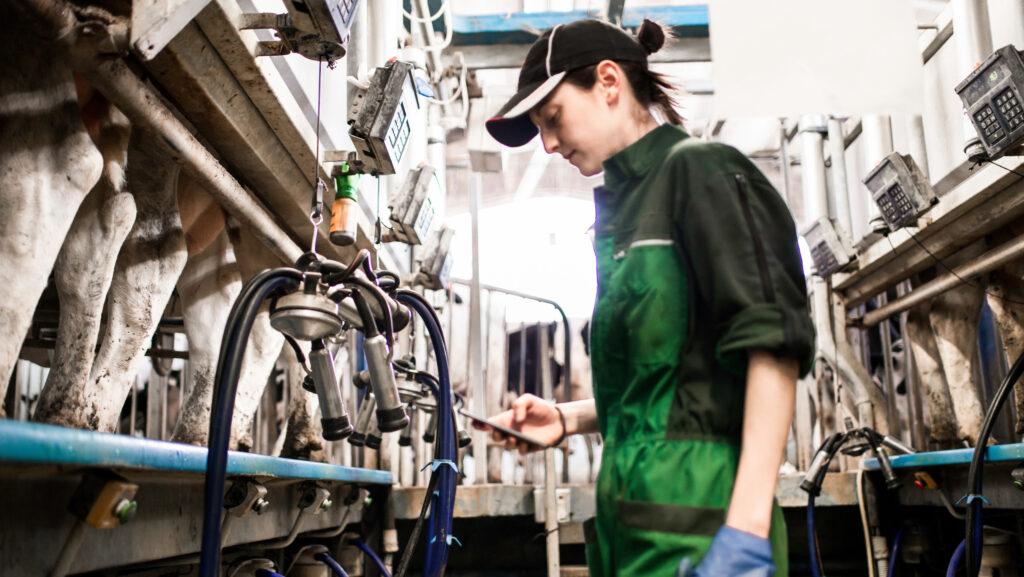Arla calls on government to help tackle dairy labour shortages
 © Adobe Stock
© Adobe Stock The UK’s largest dairy co-operative, Arla, has urged the government to help address severe labour shortages facing the dairy sector.
Arla is pushing for more support to help educate and encourage new entrants and younger generations to consider a career in dairy.
A survey, carried out by the processor, of more than 1,900 British farmers, discovered that 84% of respondents looking to fill a vacancy had struggled to find adequate staff, with some having no applicants at all.
See also: Trade barriers lifted for UK dairy exports to Egypt
Labour shortages were found to have resulted in 6% of respondents cutting milk output and 13% considering leaving the sector altogether in the next year.
Arla Foods UK managing director Bas Padberg said: “We know the government has acknowledged the problem and welcome a focus on talent and development as part of the forthcoming food strategy.
“But we need to act quickly and we need practical steps that the industry, the education sector and government can take together to support more opportunities for inclusion and growth.”
Mr Padberg told Farmers Weekly that with new government policies and strategies coming into place, such as the farming roadmap, it was the right time to raise the issue of labour shortages on farm.
In order to tackle labour shortages, the key two asks by Arla to the government were to reform the apprenticeship levy and to “educate the educators”, encouraging careers advisers to highlight farming as a viable and attractive career option.
“A lack of skilled workers will put pressure on the food security system,” said Mr Padberg.
“The first step would be to get people interested to work and invest in the farming sector.”
Arla is actively working to promote the dairy sector by engaging with politicians, providing information packs for schools, offering internships, and encouraging farmers to hosts visits.
A Government spokesperson said: “Our commitment to farming and food security is steadfast, which is why we’ve allocated a record £11.8bn to sustainable farming and food production over this parliament.
“Attracting bright new talent into agriculture is vital for the future of UK food and farming. We offer world-class T Levels, which give young people the skills and experience needed for a range of industries, including farming, while Skills England offers comprehensive training and apprenticeships.”
Focus on new entrants
An ageing agricultural workforce also poses a potential risk to farm labour, with the research showing that almost half of farmers (47%) surveyed were aged over 55.
Concerningly, just 3% of farmers who responded classed themselves as first generation farmers, highlighting the significant barriers for new entrants.
Arla board representative and farmer Heather Davies said: “This is an industry that will always need skilled people, and we must do more to communicate the value and potential of a career in agriculture.”
NFU dairy board chair Paul Tompkins said: “The findings of this survey are echoed on dairy farms across the country. Clearly, there is an ongoing labour shortage which impacts on our confidence to invest and grow and to meet demand.
“The importance of farm staff has consistently been one of the NFU’s top priorities; demanding long term flexible visa application schemes, removal of unrealistic costs of employment and shaping our national curriculum to improve the quality of food education in schools.
“There is no single solution. We must collectively do more to showcase the opportunities that come with working on a dairy farm, and ensure prospective farm workers have access to the right skills and training so there is a pipeline of people who rightly see dairy farms as a desirable place to work.”
